A new poll from Data for Progress and Fossil Free Media finds that more American voters are experiencing climate disasters firsthand and watching their costs rise — and they want to make polluters pay.
This year brought record-breaking heat domes across the central and eastern U.S., catastrophic flash floods in Texas that swept away homes and devastated communities, and destructive wildfires in Southern California that leveled thousands of homes.
These disasters are becoming more frequent and are driving up costs that average families are forced to bear. As momentum for the Make Polluters Pay campaign grows, and states like New York and Vermont have passed “climate superfund” laws requiring polluting industries to pay for climate damages, the federal government is moving to strike down these measures and shield polluters from accountability.


Key Findings
Most believe these events are becoming more frequent. Voters are especially concerned about rising insurance rates, with many expecting climate change to impact everyday costs like utilities and groceries.
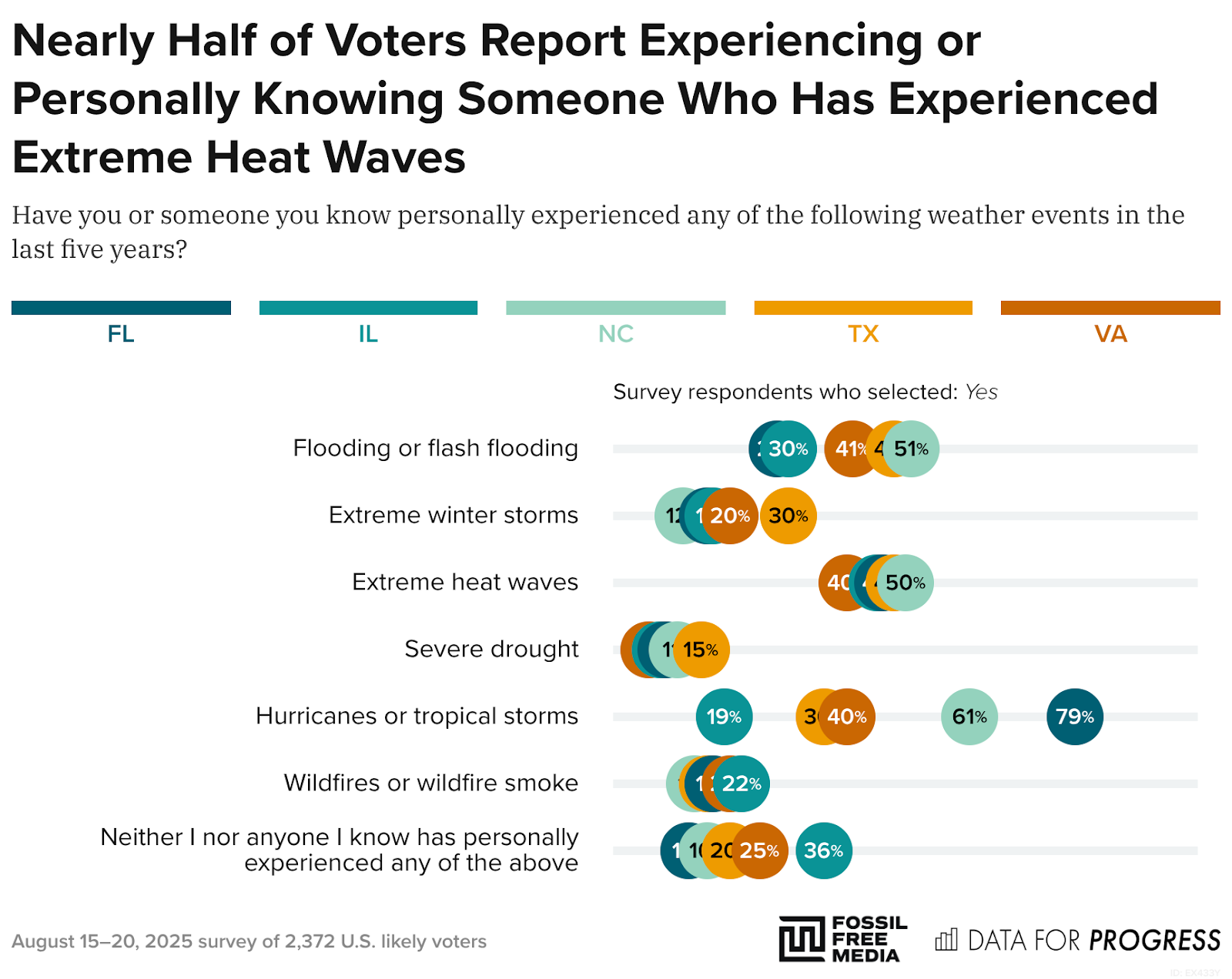
Personal Experience with Extreme Weather
When voters were asked about extreme weather:
- 45% report experiencing extreme heat waves in the last five years;
- About 3 in 10 experienced flooding or flash flooding; and
- In oversampled states, impacts are especially clear: About half of North Carolina and Texas voters report flooding experience, while nearly 4 in 5 Floridians experienced hurricanes.
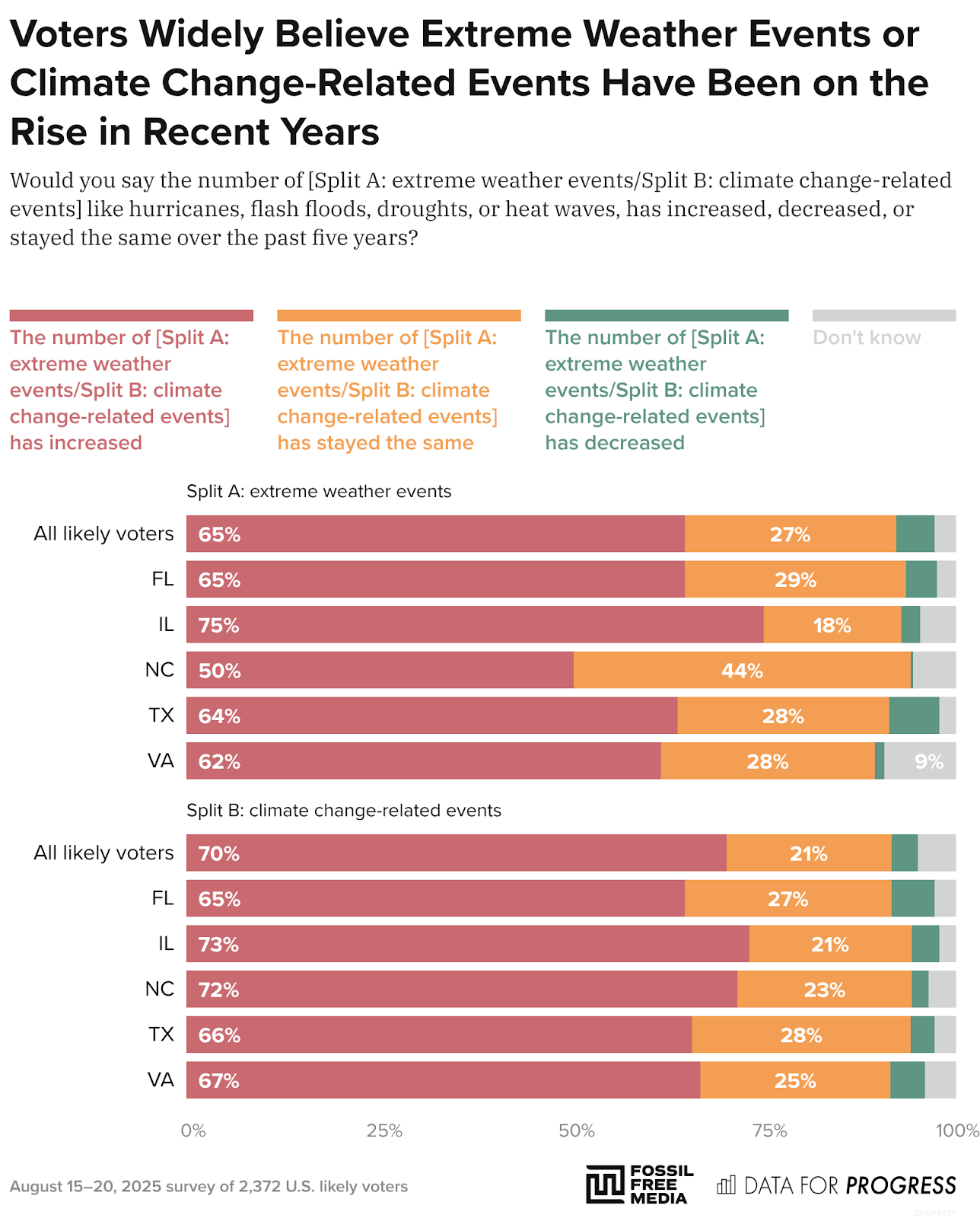
These experiences align with broader perceptions of a shifting climate
Around two-thirds (65%) of voters say extreme weather events have increased over the past five years.
When framed as “climate change-related events,” that rises to 70%. Majorities of Democrats, Independents, and Republicans say these events are becoming more frequent.
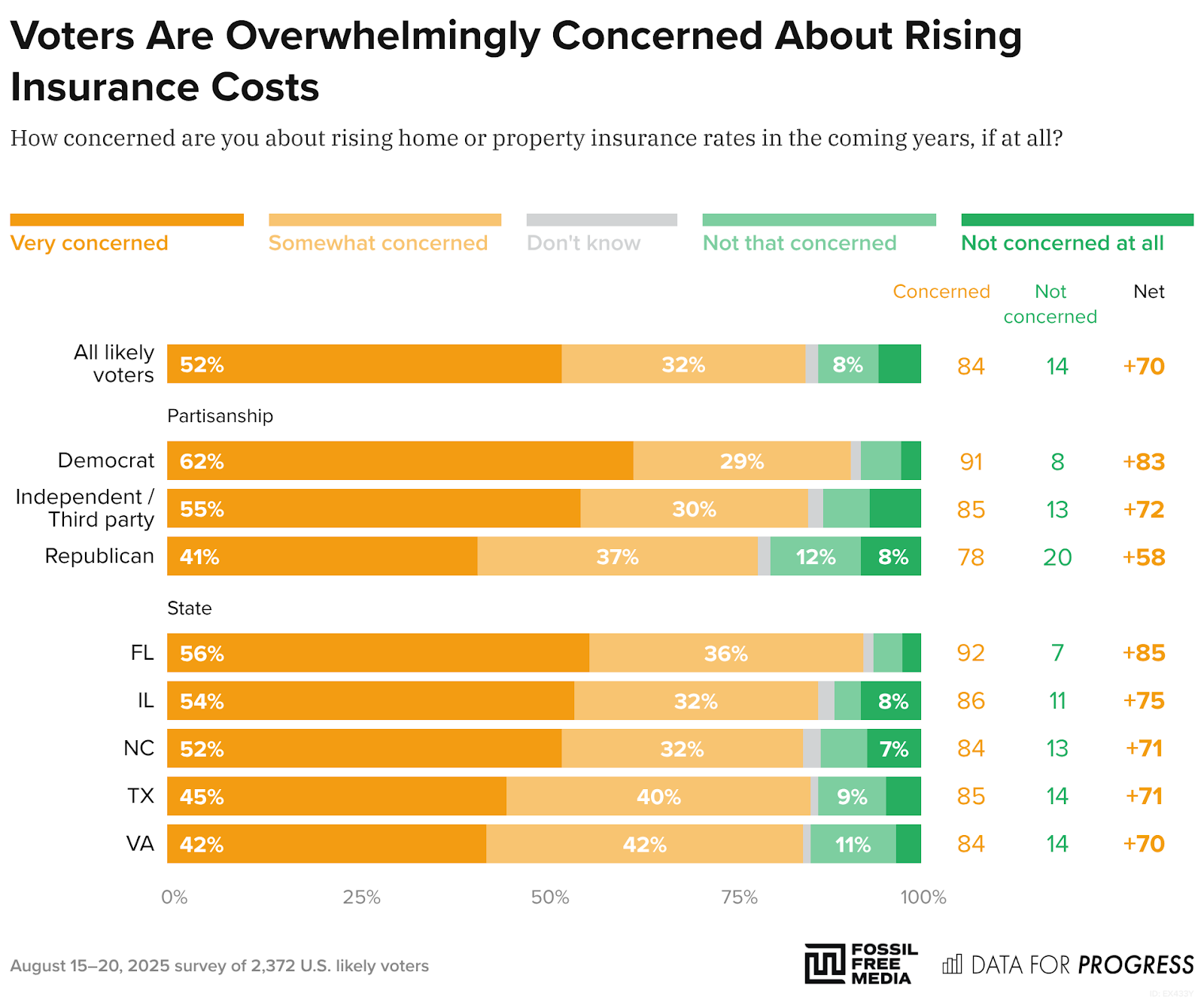
Rising Insurance Concerns
A strong majority (84%) of voters are concerned about rising home and property insurance rates in coming years — including 91% of Democrats, 85% of Independents, and 78% of Republicans.
Concern is nearly universal in Florida at over 90%.
These findings mark an uptick from March 2025, when 78% of voters expressed concern about future insurance rate increases.
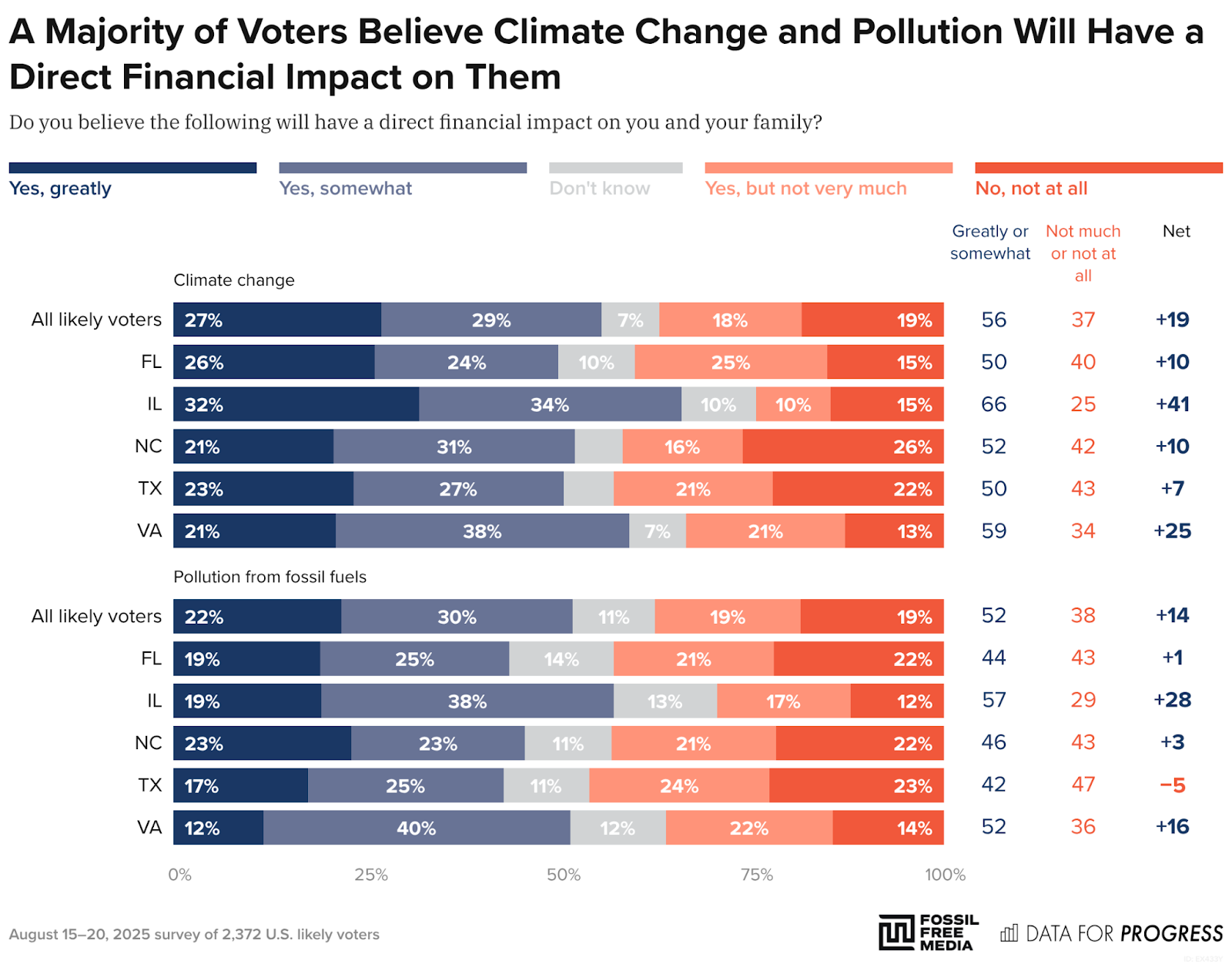
Expected Financial Impacts
A majority believe both climate change (56%) and fossil fuel pollution (52%) will directly affect household finances. Among those expecting impacts, large majorities point to:
- Higher utility bills (73%)
- Grocery bills (68%)
- Gas prices (65%)
- Health care, housing, and property maintenance costs
State results mirror partisan patterns, with voters in Illinois and Virginia more likely to expect financial impacts than those in Texas, Florida, and North Carolina.

Strong Support for Polluter Accountability
Roughly three-quarters (74%) of voters support requiring oil and gas companies to pay a share of climate-related costs, including:
- 86% of Democrats
- 74% of Independents
- 61% of Republicans
Support is broad across oversampled states, with more than two-thirds of voters in each state backing the requirement.
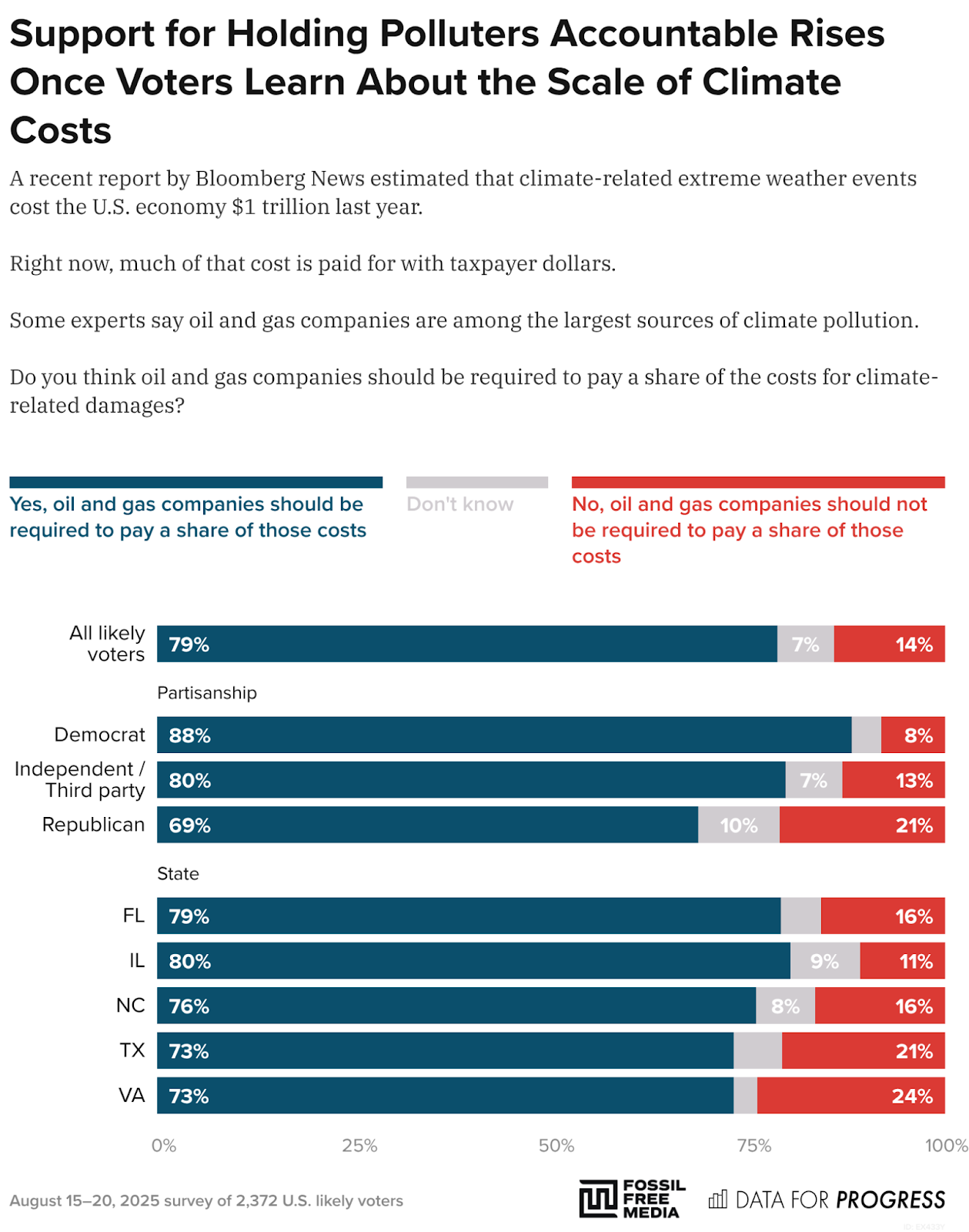
Support rises once voters learn about scale of climate costs
When informed that climate-related extreme weather cost the U.S. economy $1 trillion last year (primarily shouldered by taxpayers), support for holding polluters accountable grows to 79% overall, including 69% of Republicans.

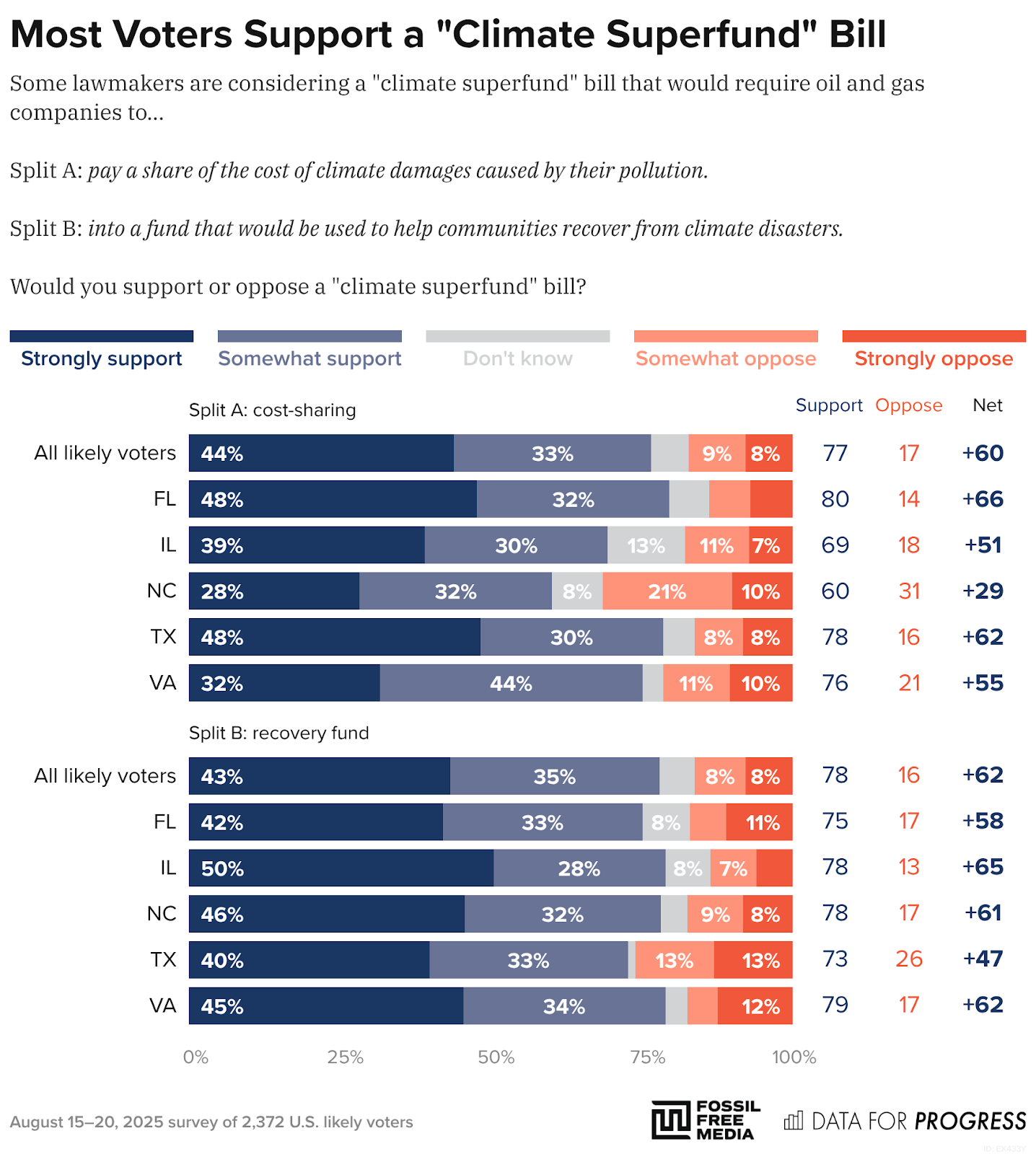
Voters Demand Climate Superfund Legislation
An overwhelming majority of voters want climate superfund laws that require oil and gas companies to pay their fair share of climate damages. Support is remarkably strong across both framings tested, including a cost-sharing framing (Split A) and a recovery fund framing (Split B):
- More than three-quarters of all voters support climate superfund legislation (Split A: 77%, Split B: 78%)
- Nearly 9 in 10 Democrats are on board (Split A: 89%, Split B: 89%)
- Around 4 in 5 Independents back these measures (Split A: 78%, Split B: 80%)
- Around two-thirds of Republicans support making polluters pay (Split A: 64%, Split B: 66%)
From Texas (73%) to Florida (80%), voters in every state we surveyed support their leaders passing these laws. This represents a surge in support from just last year, when 66% backed similar measures. The momentum is clear: Americans are ready for polluter accountability.
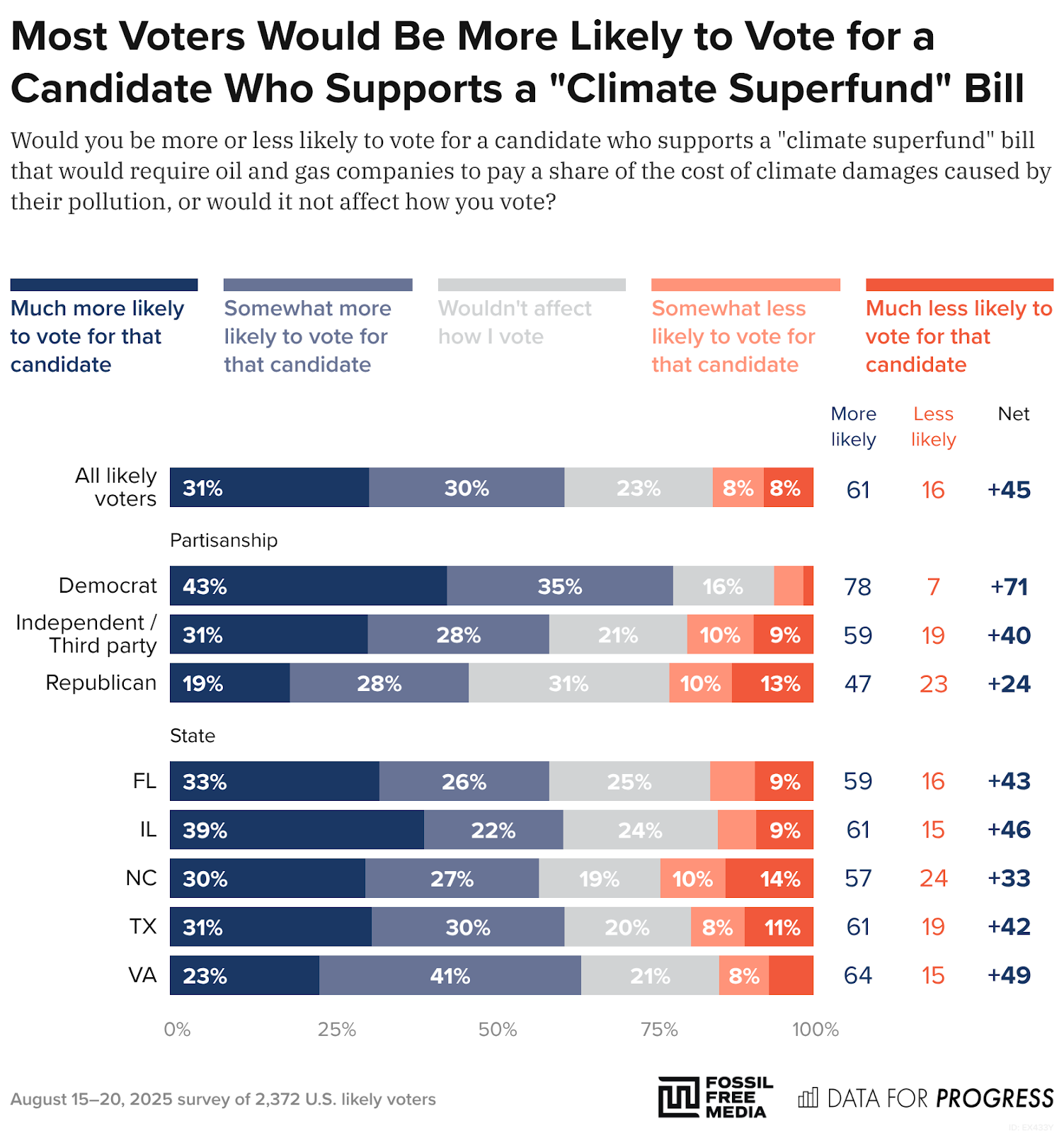
Voters Will Reward Leaders Who Stand Up to Big Oil
Politicians take note: Supporting climate superfund legislation is a winning issue. 61% of voters say they’re more likely to back candidates who champion these measures — only 16% would be less likely.
The political calculus:
- 78% of Democrats are more likely to support candidates who support polluter accountability
- 59% of Independents say they are more likely to support these candidates
- Nearly half of Republicans (47%) are more likely to support these candidates
This is about fairness, accountability, and protecting communities from climate costs. Voters are showing they’re ready to elect leaders who will make polluters pay.
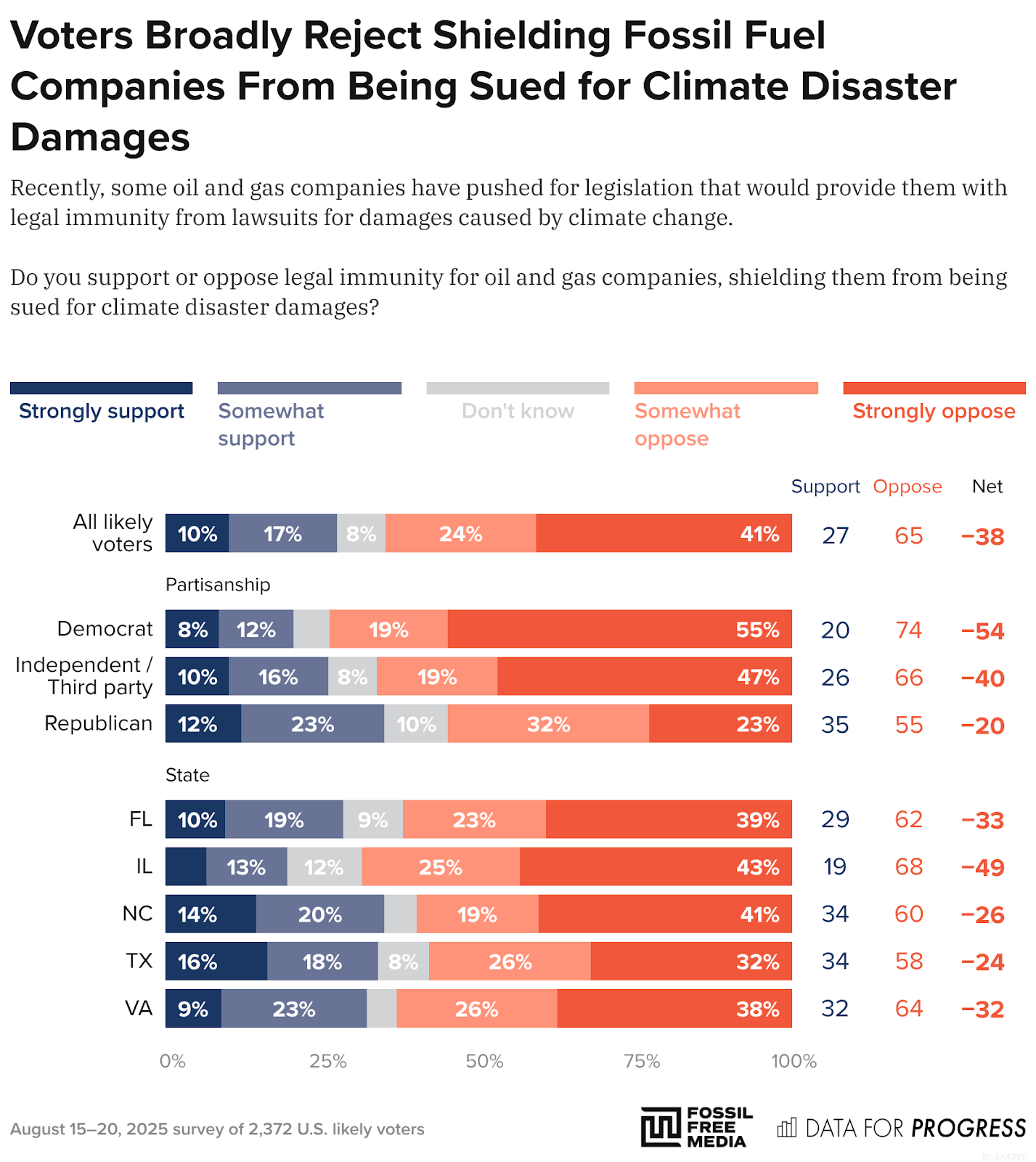
Opposition to Legal Immunity
While industry groups and some elected officials in the Trump administration are pushing for legislation that would grant oil and gas companies legal immunity from climate damage lawsuits, voters strongly oppose these efforts. Nearly two-thirds (65%) reject shielding fossil fuel companies from being sued for climate disasters — a position that cuts across party lines:
- 74% of Democrats oppose immunity
- 66% of Independents oppose immunity
- 55% of Republicans oppose immunity
This opposition has remained steady since March 2025, when we found identical levels of voter resistance to protecting polluters from accountability. The message is clear: Even as the federal government moves to shield oil companies from lawsuits, voters believe these corporations should remain liable for the climate damages they cause.
